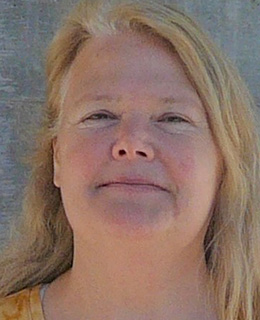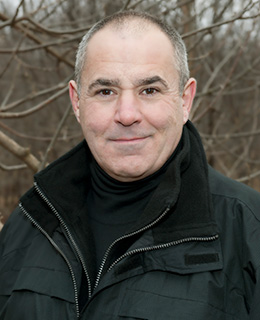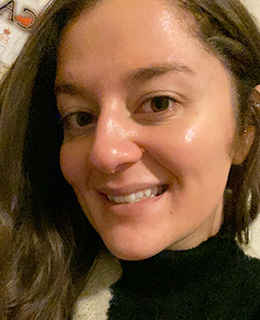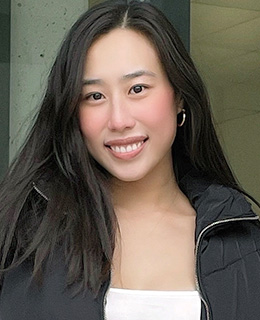Sep 24, 2022 | 11:00 AM - 12:30 PM
Shelley McCabe, MsC
The climate in Crisis: The Need for Facts and Relevance in efforts to “Save the Planet”
 What happens when The Lion King’s “Circle of life” and Stephen Colbert’s “Truthiness” are both accepted as philosophies in the same society? There appears to be a genuine desire to live a more sustainable, environmentally-friendly life. But what does that actually mean? You may have heard that we should be eating a plant-based diet; that cows are worse than fossil fuels; that cows use four times as much water per kg than do chickens; or that we can continue to use fossil fuels if we offset our emissions by planting trees. While it is fairly straightforward to determine whether these statements are based on facts, it is much more difficult to determine whether these facts are ecologically relevant.
What happens when The Lion King’s “Circle of life” and Stephen Colbert’s “Truthiness” are both accepted as philosophies in the same society? There appears to be a genuine desire to live a more sustainable, environmentally-friendly life. But what does that actually mean? You may have heard that we should be eating a plant-based diet; that cows are worse than fossil fuels; that cows use four times as much water per kg than do chickens; or that we can continue to use fossil fuels if we offset our emissions by planting trees. While it is fairly straightforward to determine whether these statements are based on facts, it is much more difficult to determine whether these facts are ecologically relevant.
Furthermore, by its very nature, science can never prove anything, it can merely disprove. Many people, on the other hand, want to be sure that their actions are the most correct in a given situation, and feel betrayed when science disproves the evidence that they were relying on to inform their choices. Social media and other internet sources can now provide a constant newsfeed of “disprovings” to the general public, whereas in previous generations, it would primarily be expert scientists who had access to each shift in paradigm. This barrage of perceived betrayal may be a contributor to the rise in distrust of science and scientists.
When we combine this growing distrust with actors that have ulterior motives, but can provide simple, direct messaging, we have the recipe for environmental campaigns that encourage lifestyle choices that may not be helpful, and might even cause further harm to the environment.
ffective education is needed, and the concept of biogeochemical cycles may be the most appropriate environmental framework to inoculate the public and policymakers from misinformation campaigns and from ineffective environmental actions.
Simon Appolloni, PhD
Pedagogies of Resilience and Hope
 Teaching environmental studies at a post-secondary institution, I have become aware of an increasing heightened level of what some are calling ‘eco-anxiety’ among students over the years, brought on by the realities of environmental destruction. This is not merely my perception, but a reality captured in numerous studies in many countries. Students of environmental studies (and science) in particular are unavoidably exposed to the grim environmental realities causing, what some refer to as “disorienting dilemmas.” Understandably, many students become anxious about their future, and felt as grief, fear, disgust, or guilt, provoking ontological questions about themselves and humanity. As an instructor of this generation, I cannot teach my students about the inevitability of so-much destruction and then, at the end of term, wave them good-bye, a sort of “have fun storming the castle!” (for Princess Bride fans out there). I, we, have a responsibility not only to provide them with the knowledge and academic prowess to assess, analyze and communicate the current situation in our world but simultaneously to help them develop some form of resilience (that is, emotional and psychological strength) within them and hope, even if dark (the conviction to keep doing what is right no matter how it turns out). In my presentation, I would like to investigate what I am calling “pedagogies of hope and resilience” (processes within lectures, strategies through assignments, and practices between classes) that will foster within students a mental resilience and some form of hope so they can carry out both the inner and societal transformations necessary.
Teaching environmental studies at a post-secondary institution, I have become aware of an increasing heightened level of what some are calling ‘eco-anxiety’ among students over the years, brought on by the realities of environmental destruction. This is not merely my perception, but a reality captured in numerous studies in many countries. Students of environmental studies (and science) in particular are unavoidably exposed to the grim environmental realities causing, what some refer to as “disorienting dilemmas.” Understandably, many students become anxious about their future, and felt as grief, fear, disgust, or guilt, provoking ontological questions about themselves and humanity. As an instructor of this generation, I cannot teach my students about the inevitability of so-much destruction and then, at the end of term, wave them good-bye, a sort of “have fun storming the castle!” (for Princess Bride fans out there). I, we, have a responsibility not only to provide them with the knowledge and academic prowess to assess, analyze and communicate the current situation in our world but simultaneously to help them develop some form of resilience (that is, emotional and psychological strength) within them and hope, even if dark (the conviction to keep doing what is right no matter how it turns out). In my presentation, I would like to investigate what I am calling “pedagogies of hope and resilience” (processes within lectures, strategies through assignments, and practices between classes) that will foster within students a mental resilience and some form of hope so they can carry out both the inner and societal transformations necessary.
Helen Liu; MED; Alyssa Racco, MA
The Global Impact of Fast Fashion

 This paper addresses the risks and consequences that fast fashion poses and attempts to frame the complex story behind each article of clothing we purchase. The sustainable fashion movement, also known as eco, green, or ethical fashion, has been on the rise in the past decade and is becoming increasingly mainstream. This paper will explore the ways in which educators can explore the opportunities, approaches, and options that sustainable fashion provides to positively impact and change various aspects of our world, such as fundamental human rights and environmental impacts. It also aims to enlighten the public and educators about the significance of fostering awareness about fast fashion in order to guide students toward a better understanding of the factors that contribute to climate change. Learning about sustainability allows students to develop a deep understanding of how humanity and the environment are intertwined. Teaching students, who will be our future consumers, about sustainable fashion and ethical product consumption can ultimately lead to an eco-friendlier future. By sharing activities and reflective questioning about the fashion industry, students will be able to explore the notion of adjusting to a climate-challenged world, and thoughtfully consider their own actions and roles as consumers in the 21st century.
This paper addresses the risks and consequences that fast fashion poses and attempts to frame the complex story behind each article of clothing we purchase. The sustainable fashion movement, also known as eco, green, or ethical fashion, has been on the rise in the past decade and is becoming increasingly mainstream. This paper will explore the ways in which educators can explore the opportunities, approaches, and options that sustainable fashion provides to positively impact and change various aspects of our world, such as fundamental human rights and environmental impacts. It also aims to enlighten the public and educators about the significance of fostering awareness about fast fashion in order to guide students toward a better understanding of the factors that contribute to climate change. Learning about sustainability allows students to develop a deep understanding of how humanity and the environment are intertwined. Teaching students, who will be our future consumers, about sustainable fashion and ethical product consumption can ultimately lead to an eco-friendlier future. By sharing activities and reflective questioning about the fashion industry, students will be able to explore the notion of adjusting to a climate-challenged world, and thoughtfully consider their own actions and roles as consumers in the 21st century.
Biographies
Shelley McCabe, MsC
Shelley McCabe is a Professor of Science in the Department of Liberal Studies at Humber College. She is a biogeochemist whose intellectual interests include the cycling of elements through living and non-living parts of our ecosystems, and the role that physics plays in promoting biodiversity. Professor McCabe has been involved in biodiversity research projects in Algonquin Park, Peterborough, Muskoka, Hamilton, and the Experimental Lakes Area, as well as Resolute (Nunavut) and Lizard Island (Australia). Professor McCabe’s research publications appear in the journals Freshwater Biology, Environmental Entomology, Water Research, and Oikos.
Simon Appolloni, PhD
Simon Appolloni is Assistant Professor at the School of the Environment, University of Toronto. He received his doctorate in the Study of Religion, in conjunction with the Collaborative Program in Environmental Studies, School of the Environment, University of Toronto. His current research interest lies in understanding and utilizing pedagogies of hope that build resilience within students as they navigate paths toward sustainability. Simon has maintained his pre-doctoral volunteer work within the environmental-social justice not-for-profit sector. Widely published, his most recent works include "6 ways to build resilience and hope into young people’s learning about climate change," "Engendering a Canadian Catholic Conversation about Care for Our Common Home," and "The Green Bible: Words of Love for a Suffering Planet.”
Helen Liu; MED; Alyssa Racco, MA
Helen Liu is a doctoral student in Education at York University. Her research interests include the critical examination of media, adolescent development, and the study of international students. Her current research involves critically assessing discrepancies between the promotion and recruitment of international secondary student programs, and whether student experiences accurately reflect the standard that is advertised. Helen is also a teacher on the YRDSB, teacher assistant, and research assistant. Her most recent publications include “Social implications of adolescents engaging with racist trends on TikTok” in The Media Education Research Journal and “Early adolescents’ perceptions and attitudes towards gender representations in video games” in the Journal of Media Literacy.
Alyssa Racco is a doctoral student in Education at York University. She has a master’s degree in education with an accompanying diploma in language and literacy. Her research interests include the education system’s role in furthering speciesist ideals, sociolinguistics, and language acquisition. Her current research intends to explore the anthroparcal messages transmitted to students via mandated curriculum. Alyssa is also a teacher with the YCDSB, Teacher assistant, research assistant, and Project Manager for a SSHRC Insight Grant. Her most recent publications include “Harry Potter and the ‘Other’” in The Journal of Fantasy and Fan Cultures and “Integration into Canadian Society: How Armenian Syrian Millennial Refugees Use Social Media” in the International Journal of Education.


